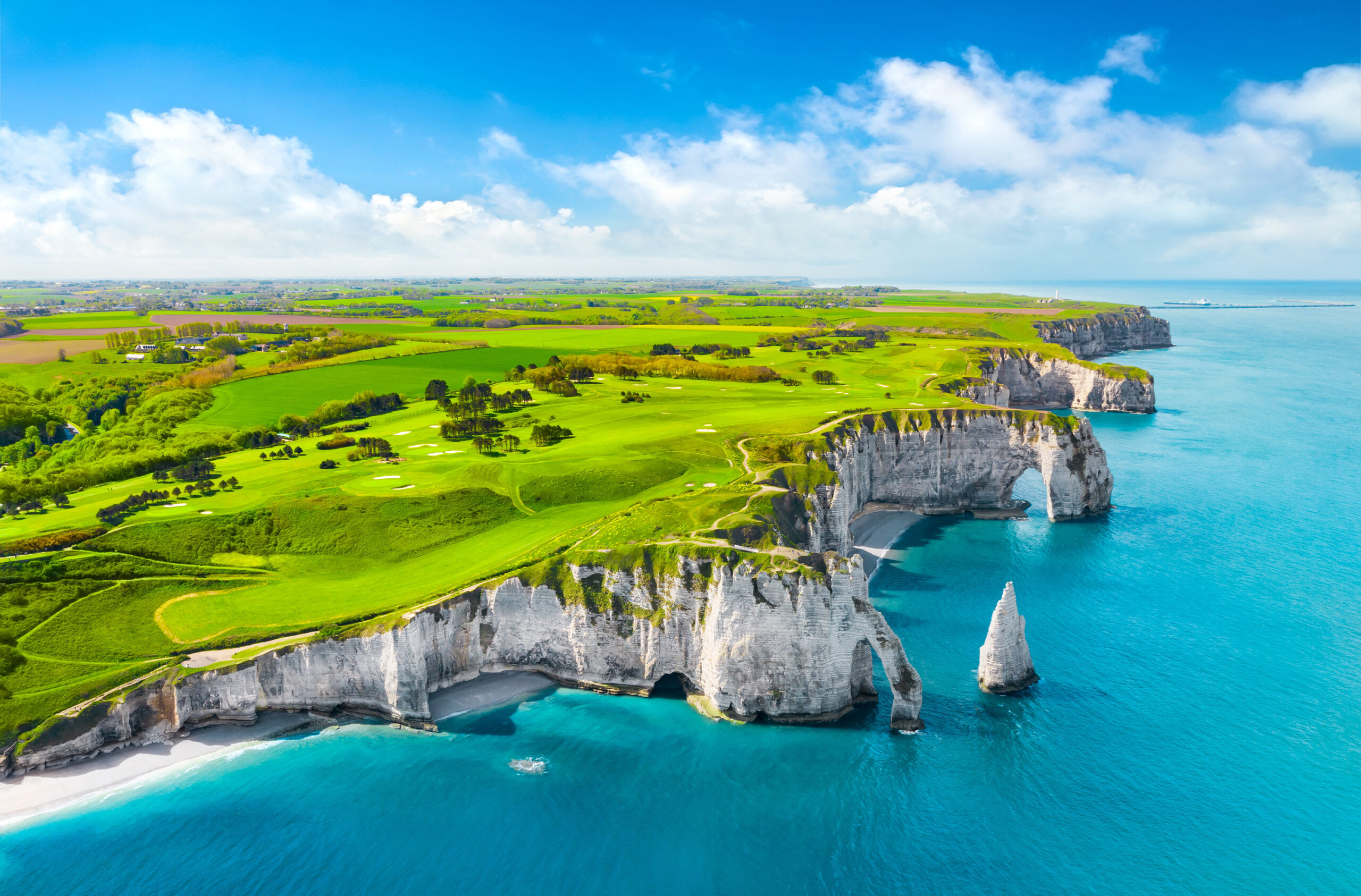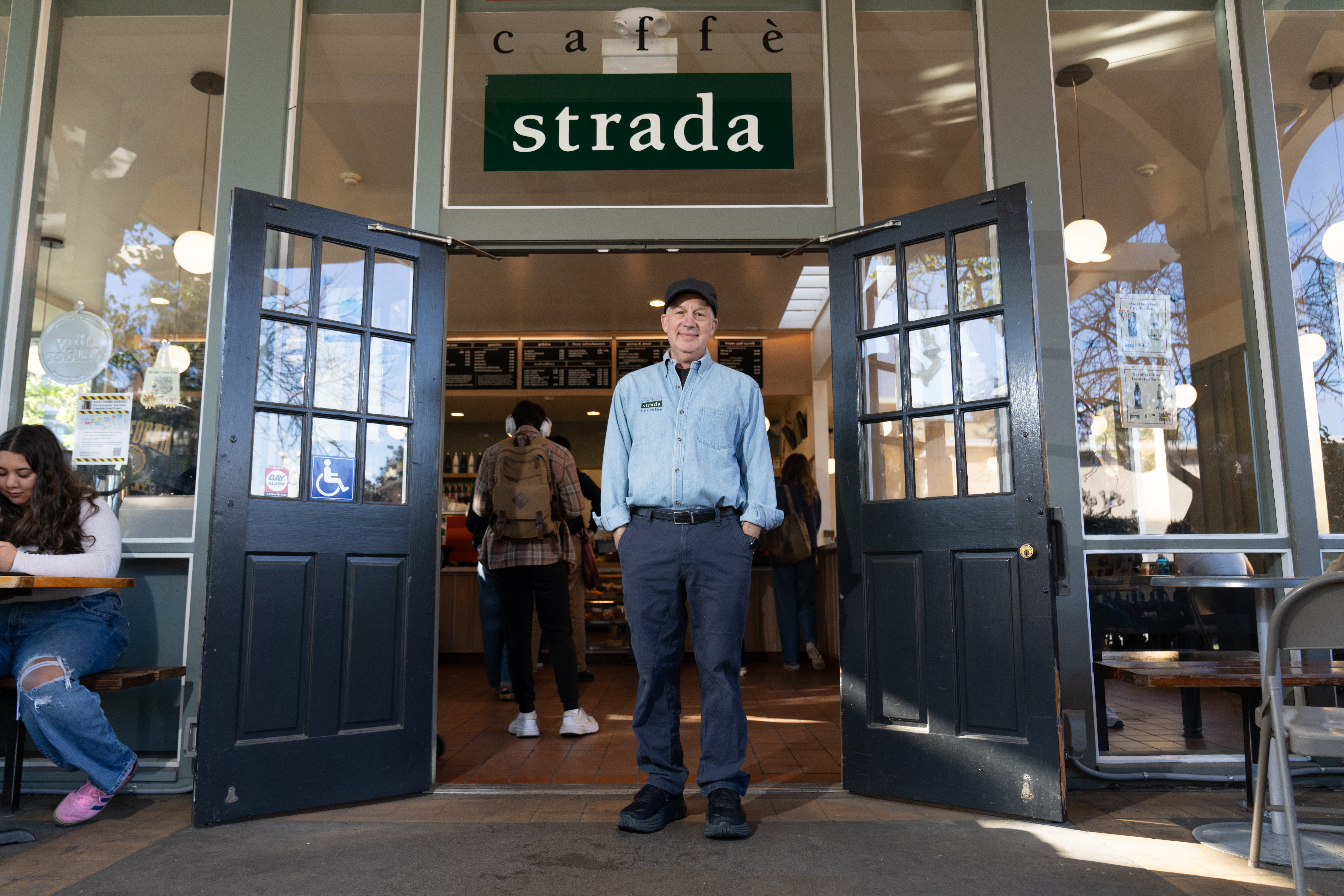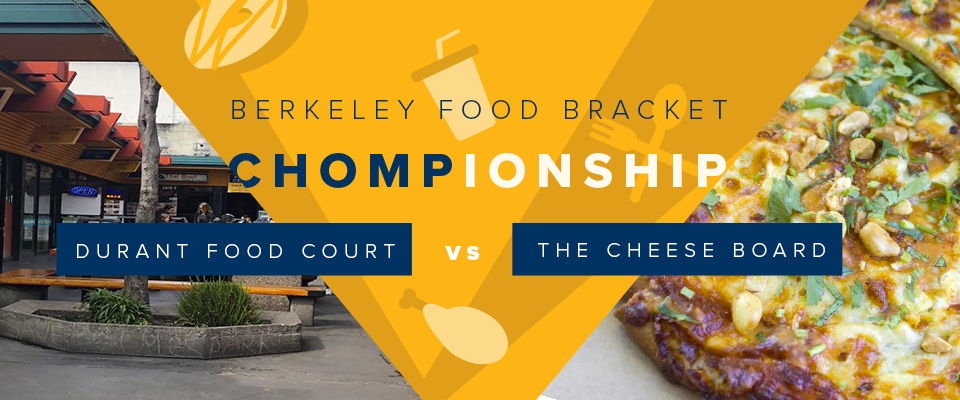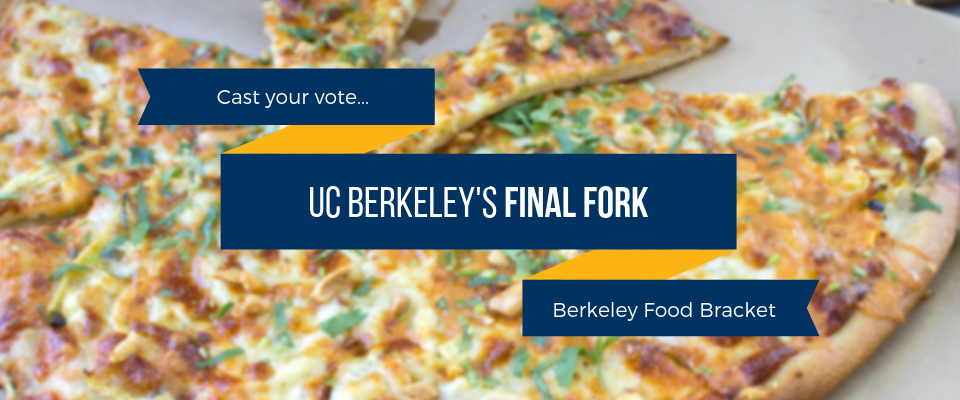Since Caffè Strada opened in 1989, it has established itself as a coffee shop specializing in espresso drinks, like its famous Strada Bianca Mocha, and as a gathering place for visitors.
Strada has lived up to its acclaim by attracting prominent visitors including former Vice President Al Gore. It’s also where Professors Mazur and Ribet conversed and discovered that Ribet had proven the epsilon conjecture.
The Cal Alumni Association sat down with founder Daryl Ross ’85 to talk about the significance of Caffè Strada’s 35th anniversary and the impact the café has had on Berkeley.
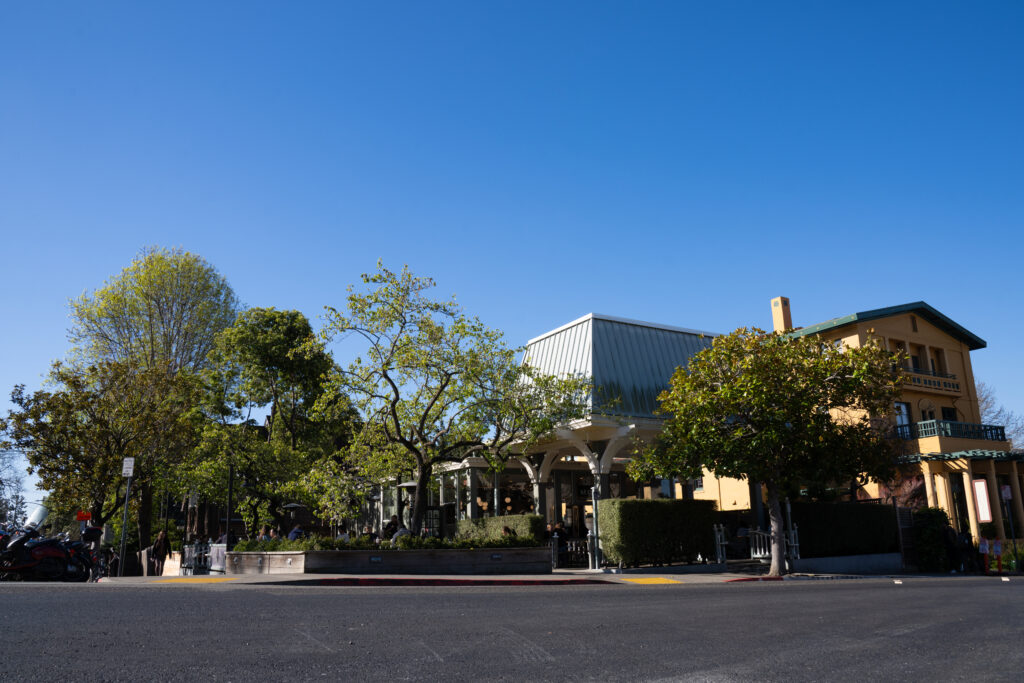
Cal Alumni Association (CAA): What was your initial vision for Caffè Strada?
Daryl Ross (DR): There had been a few places here before Strada. It was actually like a roast beef place in the late 1960s, early 70s. Then it changed to a cafe. There had been a couple of different cafes before Strada, so a cafe just seemed like a good thing in this location. It feels like we’re right on the corner of town here.
CAA: Did you ever think that Strada would become such an iconic landmark for the Berkeley community?
DR: That certainly wasn’t the design. It’s a wonderful thing to be such a part of the community and everything. It’s neat to see, when you’ve been at something for so many years, how it develops and how it becomes integrated into the community.
CAA: What does it mean for you to see how Strada has become this gathering place for students, staff, and the community?
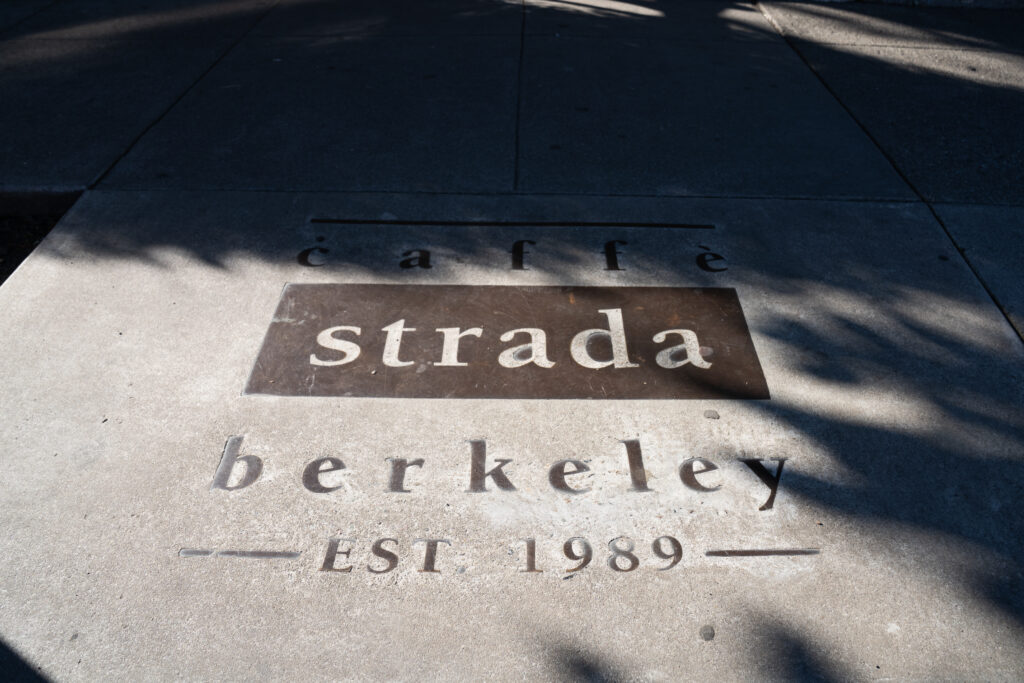
DR: I feel like every community needs what they call a ‘third place,’ separate from home and work, where people can meet and there isn’t the structure that there is at work or the demands that home has. It’s a wonderful concept that they have in Europe and elsewhere, and it started developing here in the United States somewhat in the ’50s with Italian coffee shops opening.
Then, Berkeley was really fertile ground for that taking hold because we have an international community here. It’s a very cosmopolitan feel in Berkeley. Whatever you want to say about Berkeley, it has this wonderful mix of different cultures. Berkeley really lends itself to a third place.
CAA: How does Strada exemplify UC Berkeley’s values of community?
DR: I think just being open and present for everyone and accepting of everyone. Our doors are open eighteen hours a day, seven days a week, pretty much every day of the year.
I know that I’ve gone into places where you feel like there’s maybe an agenda or that the people that work there have an attitude or there’s even an arrogance about the way they do their coffee. We don’t have that, we try not to have that. That in itself makes [Strada] what it is.
CAA: I know you have other roots at UC Berkeley. What other eateries or cafes do you operate or are you involved with?
DR: I have a cafe at the law school and business school. I have the Free Speech Movement Café at Moffitt Library and Cafe Press next to it.
Those are wonderful places. I’d say, especially FSM Café, because that has an origin of celebrating the Free Speech Movement. Mario Savio was a big part of the Free Speech Movement, and I learned about him and studied him when I was at Cal. It was sort of a neat full-circle thing. When I opened FSM, Mario Savio’s son worked for us for a while.
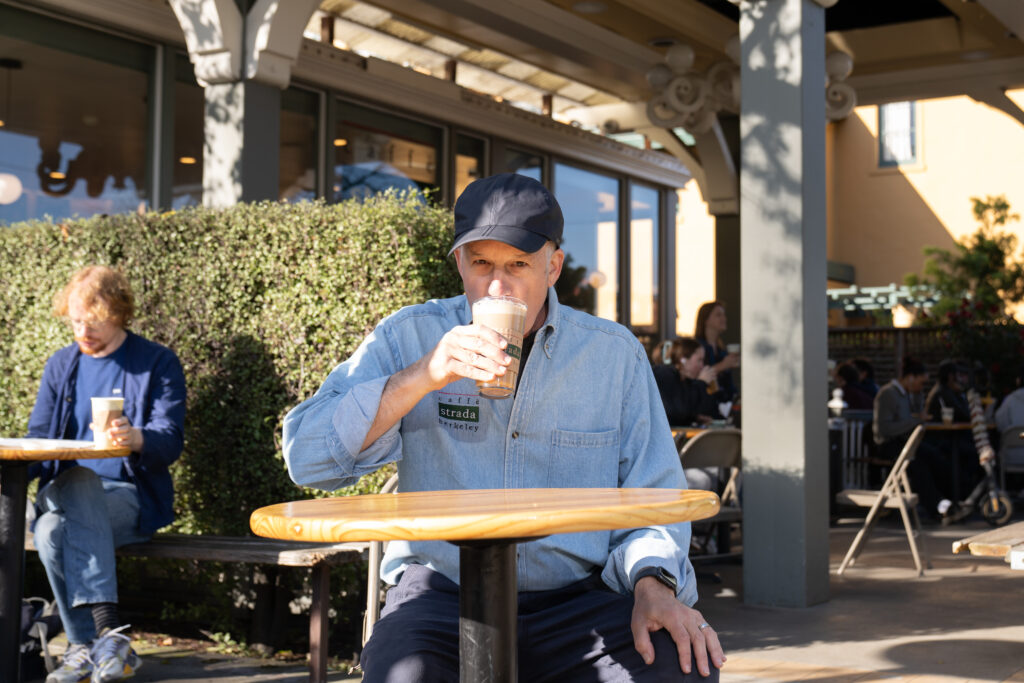
CAA: How did your own UC Berkeley experience shape the practices you implement into your business ventures?
DR: When I was at Berkeley, I was a philosophy major. I wasn’t locked into a particular community when I was here, so cafes sort of served that purpose for me. I felt most comfortable studying at cafes, and I just liked being an observer at cafes, of people and everything. That influenced how I saw Strada.
One of the main things was that, at the time, there were a lot of cafes and businesses that were putting time limits on tables. You could get your drink, but then you couldn’t stay more than an hour or whatever. I just thought that was absurd. So, we never had a time limit and we never booted people if they’ve been sitting there and nursing their drink for a long time. To me, that’s what it’s all about. It isn’t just about the sale, but it’s about giving people a place and everything.
CAA: Caffè Strada recently celebrated its 35th anniversary. What does this anniversary mean to you?
DR: It means I’m getting older. It’s really weird. It’s hard to believe that it’s been 35 years. I started Strada when I was 25, and it’s been more than half my life.
There’s certainly an emotion that it creates and an emotional attachment you have to the place that’s above and beyond it being a business. Some people have said, “oh, when are you going to retire? or, are you going to sell the place?” and the answer for me is always, never. I can’t imagine life without Strada, and I can’t imagine ever retiring from it. Hopefully, that goes on for a long time.
CAA: How did Strada celebrate its 35th anniversary?
DR: We had a celebration here. We gave away a thousand free t-shirts. All the drinks were free that day we celebrated it, which happened to be on the exact same date we opened 35 years ago.
We had the Cal Band come and play. That was really terrific, and that was probably the high point for me. There was dancing and singing along with the band and everything. We did it at night for a change, and that was cool since we had sort of a different audience come for that.
We intended for it to be [a way of] thanking the community for supporting us and just saying we are so privileged to have been here for so many years and to be supported. I’ve seen, over the years, a lot of places come and go and a lot of fads for coffee. A lot of companies sort of either go away or become part of bigger companies, and it’s all over the world, which is a different model than us. We’re just here, we’re just in Berkeley. There’s certainly been a lot of conversations about the death of independent small businesses. So for us to have that staying power and be thriving 35 years later, I think it’s an amazing thing. It is also a credit to how the Berkeley community and the campus community sustained us.
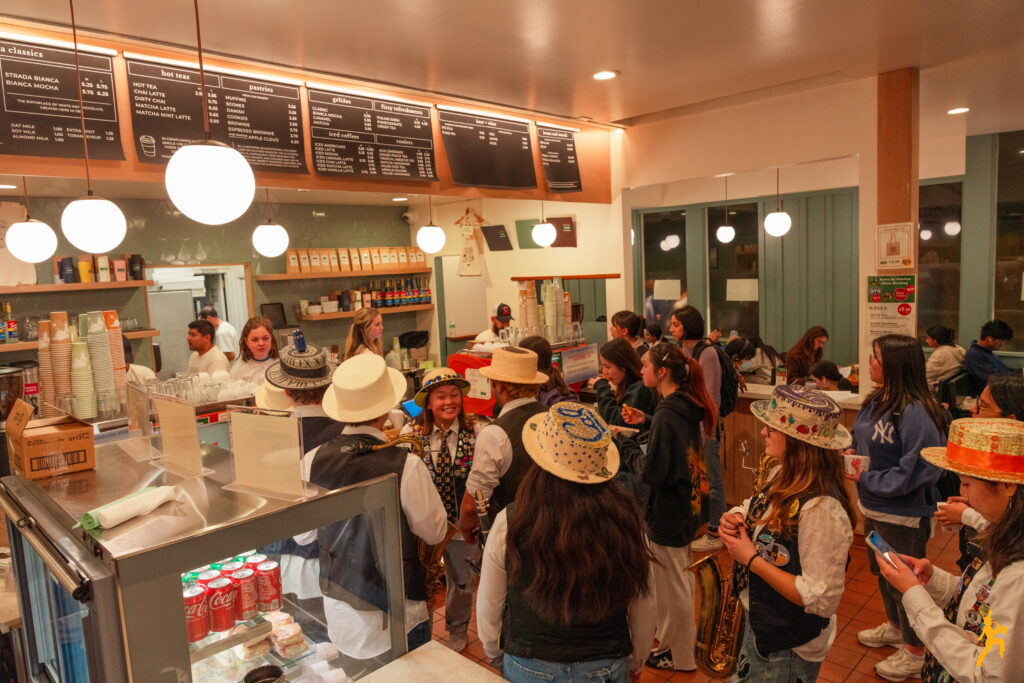
CAA: How has Strada grown and changed since it was initially founded?
DR: It’s grown in some ways and not changed in other ways.
There’s definitely been a lot of phases of coffee. Having espresso, I guess you could call it the second wave. It’s not drip coffee, and it’s not like a cafeteria kind of place. It’s what Italian immigrants brought over to the United States. We’ve never had regular drip coffee here. We’ve just had espresso drinks. In those ways we haven’t changed, and we’ve stuck with that. Even though I certainly got a lot of pressure to offer third-wave coffee and make the coffee in different ways, we didn’t want to do that. We knew who we were and we were connected to who we were. We didn’t want to be pulled away from that.
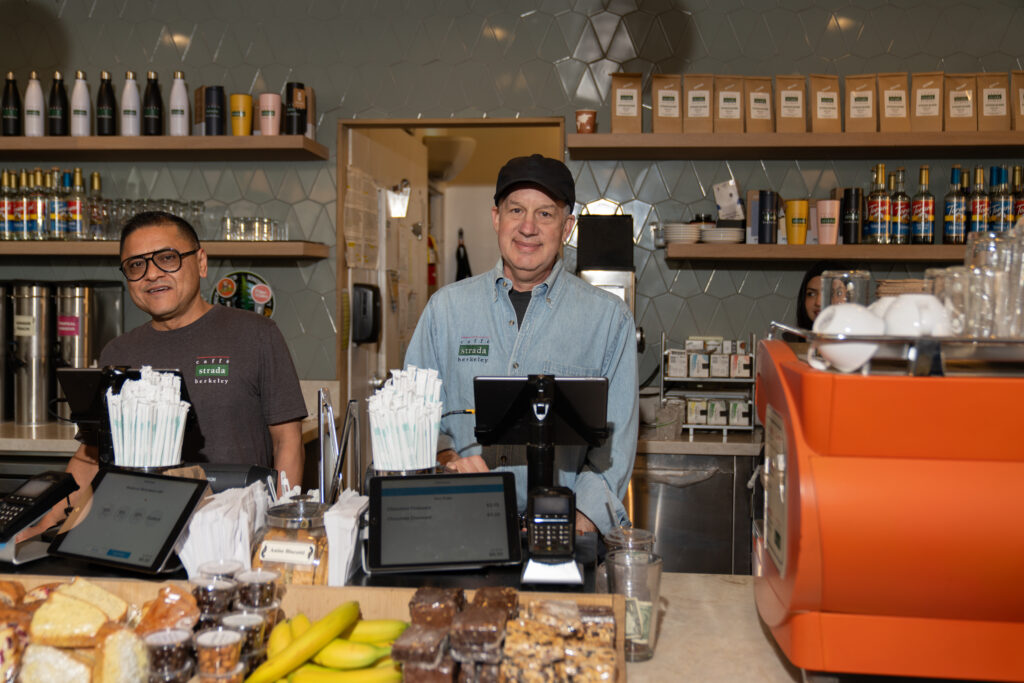
The ways we’ve changed, we started doing food during the pandemic because there were no places around that offered food. People often said, “Hey, why don’t you guys do more food?” But [the COVID-19 shutdown] seemed like the time that it was really necessary to feed the community, literally and figuratively. That’s when we started doing food and it really took off. We have these really nice panini sandwiches, and we just started doing pizza. It feels like Strada is now able to be more to the community than it used to be.
We got a beer and wine license during the pandemic. We have this exclusive relationship with Russian River Brewing, and we have Pliny The Elder, this really hard-to-get beer. That was a very big milestone for me. I started a petition at Strada where customers signed that they wanted to bring Pliny to Strada. I took that to Russian River Brewing, and they thought that was really funny. They said we’d have to try out these other beers for a year before we are even considered. Then, just recently for our 35th anniversary, they said we could start doing Pliny. It was an achievement that we worked hard to get.
CAA: What kind of legacy would you like for Strada?
DR: I think just Strada touching people’s lives. It’s sort of a lofty goal. For the people that pass through here, if [Strada] is a place that they remember fondly as they recall their years at Cal and that they feel like they made connections here or even discoveries here, that is the most you can hope for as far as a cafe having a legacy. It’s just how [the cafe] made connections, what it brought to people, and how they remember it as they move on.



